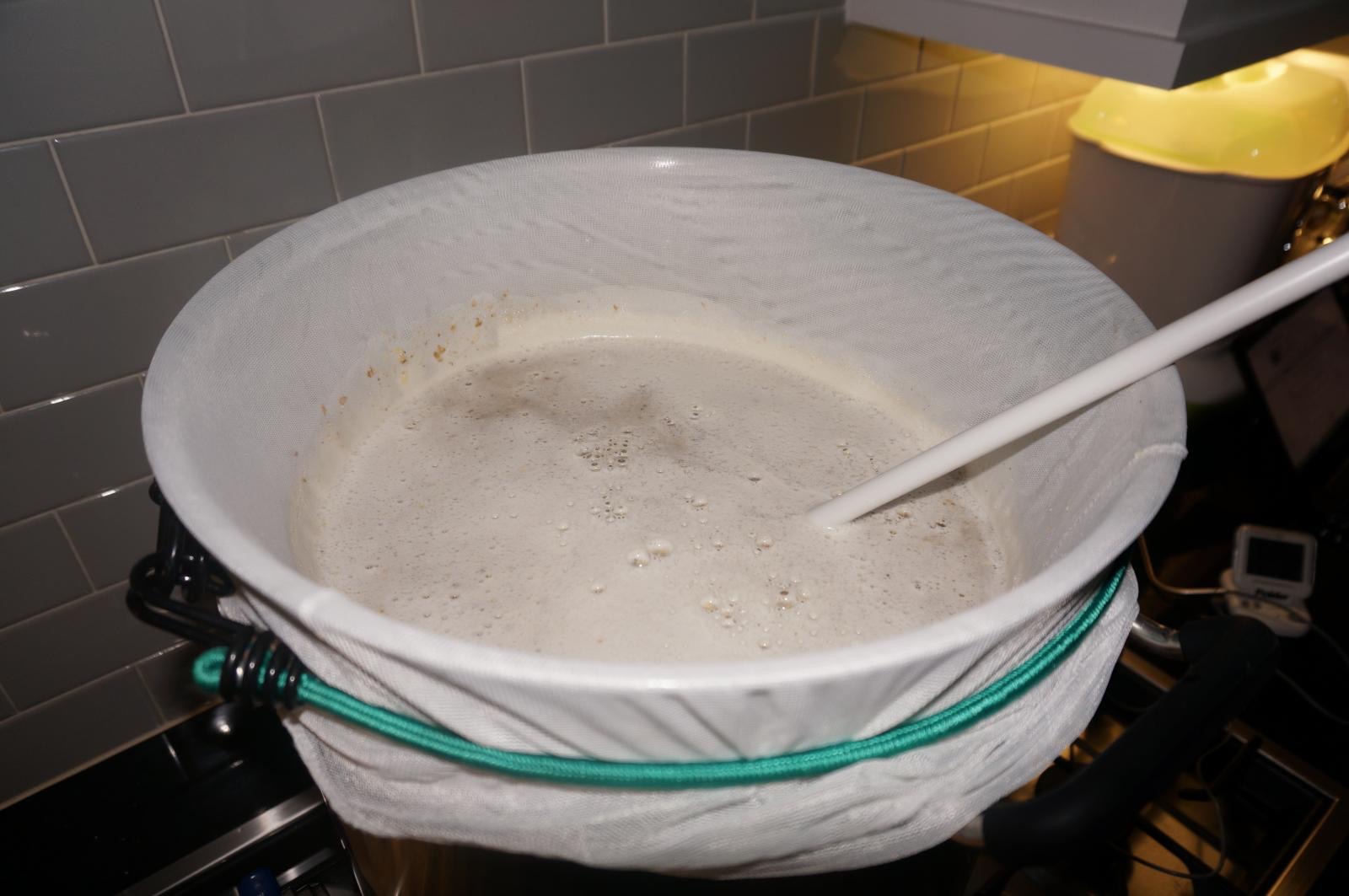BrewByBerg
Well-Known Member
- Joined
- May 7, 2013
- Messages
- 134
- Reaction score
- 0
Can someone check through my all-grain BIAB thinking for a 10gal brew kettle?
With a 13.5lb grain bill, I'm going to need about 1.25 qt/lb of mash water, bringing my brew kettle up to a little more than 4 gallons of water... But after mashing, it's going to lose about a gallon or 2 to absorption by the grain. So now down to around 2.5 or 3 gallons
I plan on doing a sparge with 170 degree water by pouring over my bag of grain until the grain is dripping clear water. Now is there a specific amount of water I have to use when I sparge or can I just make sure I try and get as much sugar off the grain as possible to up my efficiency?? I need to get to a pre boil volume of around 6.5gal due to boil off so I can have a 5.25 gal final volume. If sparging only takes a couple gallons of water to complete, Should i just pull the bag and pour the remaining water into the kettle to achieve my 6.5gal pre boil volume?
Does this all sound right and doable?
Schedule
-Add 1.25qt/per lb of grain = 4.25gal @152 for 60 min
-after 60 min, pull bag and let runnings drip
-pour 2 or remaining gal of 170 degree water over grain until clear drippings
-final pre boil volume is reached at 6.5gal then boil begins
Any input on this method would be great, I'm just trying to figure out if pouring the heated water over the grain is the best way to sparge on my first BIAB batch.
Thanks
With a 13.5lb grain bill, I'm going to need about 1.25 qt/lb of mash water, bringing my brew kettle up to a little more than 4 gallons of water... But after mashing, it's going to lose about a gallon or 2 to absorption by the grain. So now down to around 2.5 or 3 gallons
I plan on doing a sparge with 170 degree water by pouring over my bag of grain until the grain is dripping clear water. Now is there a specific amount of water I have to use when I sparge or can I just make sure I try and get as much sugar off the grain as possible to up my efficiency?? I need to get to a pre boil volume of around 6.5gal due to boil off so I can have a 5.25 gal final volume. If sparging only takes a couple gallons of water to complete, Should i just pull the bag and pour the remaining water into the kettle to achieve my 6.5gal pre boil volume?
Does this all sound right and doable?
Schedule
-Add 1.25qt/per lb of grain = 4.25gal @152 for 60 min
-after 60 min, pull bag and let runnings drip
-pour 2 or remaining gal of 170 degree water over grain until clear drippings
-final pre boil volume is reached at 6.5gal then boil begins
Any input on this method would be great, I'm just trying to figure out if pouring the heated water over the grain is the best way to sparge on my first BIAB batch.
Thanks





























![Craft A Brew - Safale S-04 Dry Yeast - Fermentis - English Ale Dry Yeast - For English and American Ales and Hard Apple Ciders - Ingredients for Home Brewing - Beer Making Supplies - [1 Pack]](https://m.media-amazon.com/images/I/41fVGNh6JfL._SL500_.jpg)





























